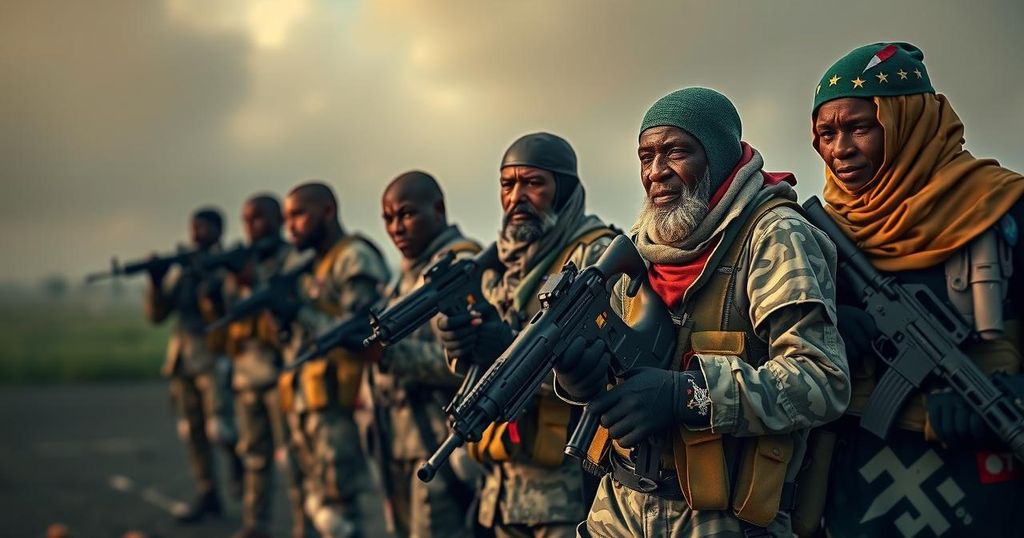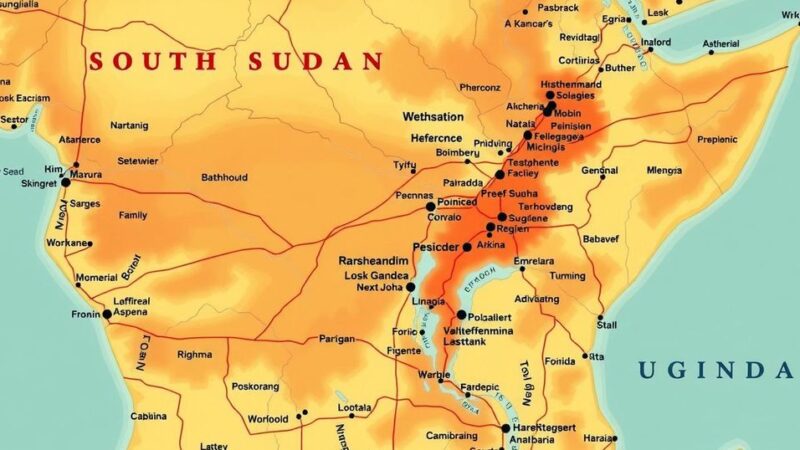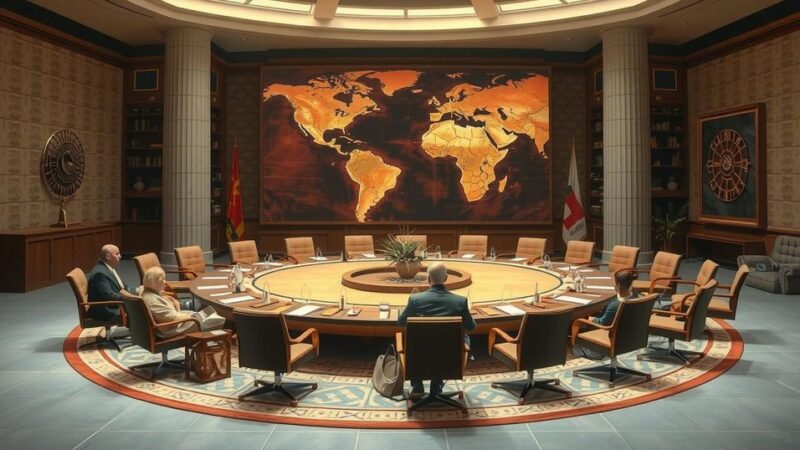Sudan’s ambassador to Tunisia has condemned the influx of mercenaries from Libya, Chad, and Niger, asserting a need for the cessation of their arrival rather than military assistance. He emphasized the humanitarian crisis with millions displaced internally and abroad due to conflict with the Rapid Support Forces. The government continues to reject international peacekeeping forces, asserting its army can uphold security. Meanwhile, allegations of external military support to RSF have emerged.
The Sudanese government has adamantly opposed the influx of mercenaries from neighboring nations, including Libya, Chad, and Niger. Ahmed Abdel Wahid Ahmed, Sudan’s ambassador to Tunisia, emphasized during a press conference in Tunis that the nation does not require military assistance; rather, it seeks to halt the entry of foreign mercenaries. This statement comes amid ongoing conflict between the Sudanese army and the Rapid Support Forces. He expressed concerns about the persistent flow of mercenaries, noting that despite efforts to eliminate them, new groups continue to arrive. Ambassador Ahmed categorically dismissed the need for international peacekeeping forces, asserting that the Sudanese army is capable of maintaining order and security on its own. Furthermore, he highlighted the humanitarian crisis resulting from conflict, with approximately 13 million people having been displaced both internally and externally. He indicated that 10 million individuals have been forced from their homes within Sudan, while around 3 million have sought refuge abroad and lamented the loss of 5,000 lives in Khartoum alone. Moreover, the ambassador pointed to the egregious control the Rapid Support Forces maintain over South Darfur, where they have allegedly perpetrated severe crimes. He claimed that this militia unlawfully occupies homes and territories in critical regions, thereby exacerbating the humanitarian crisis. He urged the United Nations to publicly condemn these activities as contrary to humanitarian principles and global legal standards. Sudan’s representative to the United Nations, Al-Harith Idris, has also spoken out about the threats posed by external forces, specifically accusing the “106th Brigade” of Khalifa Haftar’s forces of supplying arms to the Rapid Support Forces through border conduits. The situation in Sudan remains dire as the government increasingly finds itself at odds with armed groups suspected of receiving external support, drawing attention to the urgent need for both national stability and international intervention toward establishing peace.
Sudan has been grappling with intense internal conflict, particularly between the national army and the Rapid Support Forces (RSF). The RSF, originally formed to counter issues in Darfur, has grown in power and influence, leading to destabilizing acts across the region. The involvement of foreign mercenaries has escalated tensions and humanitarian crises, prompting the Sudanese government to appeal for the cessation of their influx. Ambassadors and representatives have underscored the severe displacement inflicted upon the Sudanese populace as a result of ongoing violence, with millions affected. The international community’s role is increasingly scrutinized amidst calls for accountability and support.
The situation in Sudan highlights the urgent need to address the influx of foreign mercenaries and the resulting humanitarian fallout. Displacement, violence, and the involvement of external factions complicate the internal conflict significantly. The Sudanese government continues to advocate for national sovereignty and the right to self-governance while calling for international awareness and condemnation of the acts committed by the RSF. As the crisis evolves, continued observation and potential intervention from the global community may be necessary to restore peace and stability.
Original Source: libyaobserver.ly






